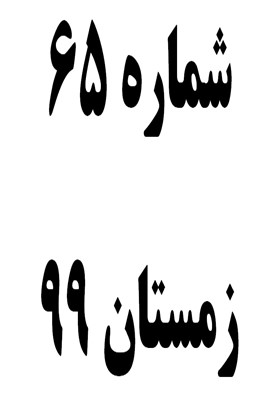اثربخشی آموزش مدیریت والدین بر روابط مادر- فرزندی و خود انتقادی مادران کودکان کم توان ذهنی
محورهای موضوعی : علوم تربیتیسمیه تکلوی 1 * , مهدی جهانگیری 2
1 - عضو هیئت علمی دانشگاه آزاد اسلامی واحد اردبیل
2 - دانشگاه آزاد اسلامی، واحد اردبیل، ایران.
کلید واژه: کم توان ذهنی, مدیریت والدین, روابط مادر- فرزندی, خود انتقادی,
چکیده مقاله :
پژوهش حاضر با هدف بررسی اثربخشی آموزش برنامه مدیریت والدین بر روابط مادر- فرزندی و خود انتقادی مادران کودکان کم توان ذهنی صورت گرفت. این پژوهش از نوع نیمه آزمایشی با طرح پیش آزمون و پس آزمون دو گروهی (آزمایش و کنترل) میباشد. جامعه آماری پژوهش کلیه مادران کودکان کم توان ذهنی (مراکز نگهداری و مدارس استثنایی) شهرستان پارس آباد در سال 1395 بودند که به روش نمونهگیری دردسترس تعداد 30 نفر انتخاب و در دو گروه آزمایش (15 نفر) و کنترل (15 نفر) جایگزین شدند. برای جمع آوری دادهها از مقیاس رابطه والد- کودک و سطوح خود انتقادی استفاده شد. گروه آزمایش تحت 8 جلسه 60 دقیقه ای برنامه آموزش مدیریت والدین قرار گرفتند و گروه کنترل بدون هیچگونه مداخله ای باقی ماند. تجزیه و تحلیل داده ها به روش واریانس چندمتغیره صورت گرفت. فرضیه تحقیق حاضر این بود که آموزش برنامه مدیریت والدین بر روابط مادر-فرزندی و خود انتقادی مادران اثر گذار است. نتایج نشان داد آموزش برنامه مدیریت والدین موجب افزایش روابط مادر- فرزندی و مولفههای آن و کاهش خودانتقادی و مولفههایش در مادران کودکان کم توان ذهنی شده است. در نتیجه میتوان بیان کرد آموزش برنامه مدیریت والدین میتواند روش کارآمدی در بهبود روابط مادر- فرزندی و کاهش خودانتقادی در مادران کودکان کم توان ذهنی باشد.
The aim of study was to investigate the effectiveness of parent management training program on mother-child relationships and self- criticism mothers of children with intellectual disability. This study is a quasi-experimental design with pre-test and post-test in two groups (experimental and control) respectively. The population consisted of all mothers of children with intellectual disability (care centers and special schools) Pars Abad city in 1395 that 30 individuals were selected by convenience sampling method and were replaced in two experimental (n = 15) and control (n = 15) groups. Parent-Child Relationship Scale and levels of self- criticism were used to collect data. The experimental group received 8 sessions of 60-minute of parent management training and a control group remained with no intervention. The data analysis was performed by MANOVA. . The hypothesis of this study was to investigate the effectiveness of parent management training program on mother-child relationships and self- criticism mothers of children with intellectual disability. Results showed that parent management training programs enhance the mother-child relationship and its components and reduce self-criticism and its components in mothers of children with intellectual disability. As a result, it can be stated, parent management training program can be an efficient method to improve mother-child relationships and self-criticism decline in mothers of children with intellectual disability.
_||_

